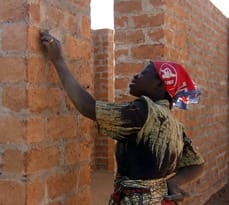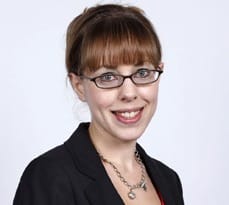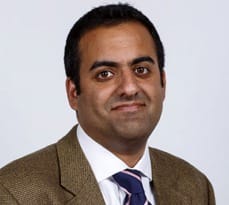 How do you equip managers with cutting-edge management skills when the traditional routes of MBAs and Executive MBAs are beyond the pocket of the majority of voluntary sector organisations and their employees?
How do you equip managers with cutting-edge management skills when the traditional routes of MBAs and Executive MBAs are beyond the pocket of the majority of voluntary sector organisations and their employees?
It’s an issue that plagues many a third sector management team – and given that the average MBA costs more than the average UK or US salary, it’s not one that will be resolved any time soon. At a time when the professionalisation of third sector management matters more than ever, it’s also an issue that won’t go away.
One way to give managers the skills they need is to partner with the private sector or another third sector organisation. One that is dedicated to the (undeniably niche) goal of up-skilling voluntary sector managers is the Sainsbury Bursary Scheme which has, for the past 15 years, funded MBAs and Executive MBAs for third sector managers.
Partnering with Cambridge Judge Business School (the University of Cambridge’s business education arm), the Sainsbury Bursary makes five funding awards every year, worth either £14,000 or £28,000, towards course fees for managers from the charitable or voluntary sector who would otherwise be unable to fund an elite business programme.
Operated by the Monument Trust, one of the 18 Sainsbury Family Charitable Trusts, the bursary scheme has returned many managers better equipped to the voluntary sector, says Monument Trust Director Alan Bookbinder:
The trustees have always felt that the voluntary sector is lacking generally in strategic business skills. Our aim was that the bursaries would over time produce a cohort of voluntary-sector managers who had had the benefit of training in strategy, finance and communications skills, and that this would enhance the calibre of senior management in the sector.
A second strand of the Trust’s vision for the bursary is the facilitation of a two-way interchange of ideas and skills between students from charitable and commercial backgrounds. Bookbinder says: “As a secondary benefit, we thought that the presence of voluntary-sector people in an MBA group would prompt the more commercially minded candidates on the course to think more broadly, and to take into account the voluntary sector in their own future careers.”
The Executive MBA (EMBA) at Cambridge Judge is of particular benefit to busy third sector executives as it is designed to fit in with busy schedules. Managers continue to work while engaged on the 20-month programme, which offers everything an MBA course offers in rigorous general management training but with a range of customisable elements to work around delegates work commitments.

Dr Louisa Cox is one of the recipients of a Sainsbury Bursary in the current EMBA cohort. Currently head of development at Article 25 – an architectural and construction aid charity that works to rebuild vital infrastructure like schools and health centres in disaster zones – Cox believes that many of the disciplines taught on the EMBA will have direct relevance to her role, including accountancy, marketing, management practice and management science:
“When you work in the charity sector, you get pigeonholed into areas like fundraising. But if you want to reach a more senior level, it’s essential to have an understanding of fields outside of that.”
The Cambridge Judge approach of collaborative learning, which encourages students to work together in small groups and learn from one another has offered Cox unique contact with top executives from other fields – an experience she has found hugely valuable, both for networking and for gaining a different perspective on management:
Working in groups on the EMBA really helps. You see how someone from a different background would tackle the same task – you can see their thought patterns and their logic, and if you aren’t used to that way of working, it fast-tracks your learning because everyone’s contributing different skills.
Cox also sees the programme as central to her future plans: “In the future I expect to be leading a large or medium-sized NGO. The EMBA is a route to that because it allows you to gain knowledge and expertise outside your immediate work area. And I’d have been unable to do it without the bursary.”
Another EMBA student to receive financial aid from the Sainsbury Bursary Scheme is Dr Farhad Cooper. A doctor specialising in HIV medicine at Chelsea and Westminster Hospital NHS Foundation Trust, Cooper also volunteers in East Africa with the London School of Hygiene and Tropical Medicine, on a scheme to train local and foreign doctors in how to manage tropical illnesses. He says:
I started by helping to teach and run the course and raise money from alumni for our scholarship fund. What that really highlighted to me was that, as a doctor, I have been given an awful lot of clinical training but surprisingly little about how to run an organisation. So I chose to apply to do the EMBA at Cambridge – especially because there was funding targeted at people like me from the non-profit sector.

Cooper cites the management practice module of the EMBA as being particularly useful, along with the opportunity to develop networking skills “which are not always part of a doctor’s natural skill set”. He adds:
“There’s an interesting phrase that some of us use: the desire to be ‘bilingual in the languages of both business and medicine’. An appreciation of the wider environment in which we exist is essential if you want to make a real difference, especially in the not-for-profit sector.”
Cooper is already seeing the benefits of the EMBA programme both in his NHS and voluntary roles:
“I’m already putting the lessons into practice. In London, my clinic is constantly evolving, and I’m already more confident writing proposals and performing evaluations to ensure that we continue to provide an effective, sustainable and patient-focused service for our users.”
In carrying EMBA expertise back into the voluntary sector, Louisa Cox and Farhad Cooper are sustaining a successful tradition according to Alan Bookbinder:
“We’ve been very glad to follow the progress of the bursary scheme’s graduates. We’re certainly satisfied that they have made really good progress and are doing jobs of substance. We very much hope that the bursary has been instrumental in allowing them to do that.”

